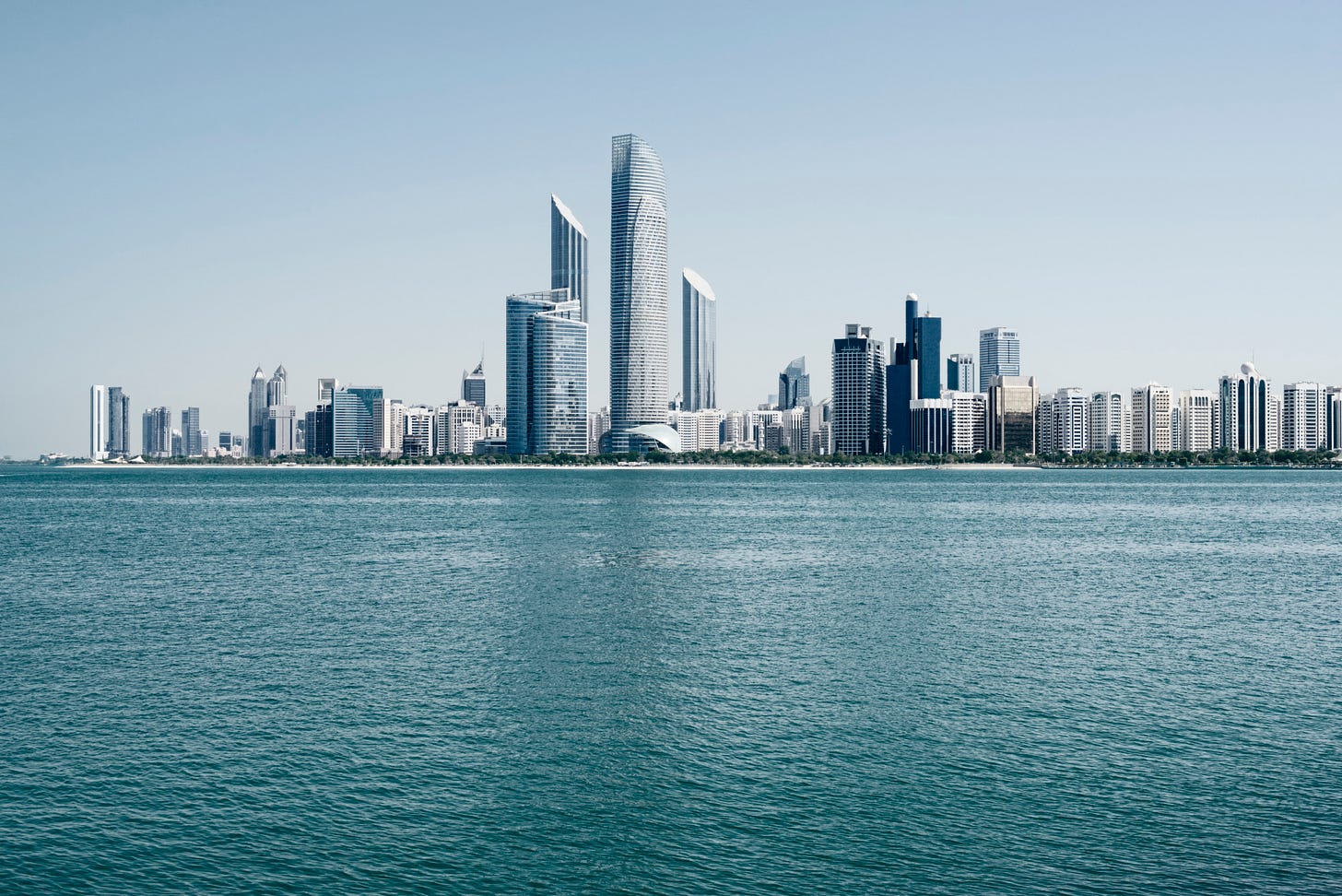Emerging Markets Daily - September 8
Pakistan Dropped From 'Emerging' Index, Blackrock Raises $1B for China Fund, Sri Lanka Severe FX Crisis, Ant Enters SE Asia Food Biz, ADIA Eyes Climate, Tech
The Top 5 Stories Shaping Emerging Markets - September 8
MSCI Downgrades Pakistan Market from “Emerging” to “Frontier”
Bloomberg
“Index provider MSCI Inc. downgraded Pakistan to a frontier market, four years after its ranking was raised to an emerging market.”
“‘Although the Pakistani equity market meets the requirements for market accessibility under the classification framework for emerging markets, it no longer meets the standards for size and liquidity,’ according to a statement by MSCI. The proposal is to be implemented with the November semi‐annual index review, MSCI said.
“The decision has been expected since Pakistan started falling below the MSCI’s criteria in terms of size and liquidity after its promotion to an emerging market in 2017. The South Asian nation’s benchmark KSE-100 Index rose to a record in the run up to the upgrade but slumped into a bear market soon after.”
“A corruption scandal involving then Prime Minister Nawaz Sharif sent foreigners on a selling spree. Overseas investors have sold shares worth more than $1 billion since the upgrade. The KSE-100 is down 12% from its record high and traded little changed at 10:05 a.m. local time in Karachi.”
“‘After Pakistan’s downgrade, passive investors will have to sell around $100 million worth of shares in total, when the change becomes effective,’ Brian Freitas, a New Zealand-based analyst who publishes on independent research website Smartkarma, said by phone before the decision.” Faseeh Manghi and Abhishek Vishnoi reports
Blackrock Raises $1 Billion for First Foreign-Run China Mutual Fund
Financial Times
“BlackRock has raised Rmb6.7bn ($1bn) for its first mutual fund in China, as the world’s biggest asset manager presses ahead with its expansion into the country’s lucrative savings market despite concerns over the political climate. The US company, which became the first global group to gain approval for a wholly owned Chinese mutual fund business in June, said it closed fundraising a week earlier than expected and brought in more than 110,000 investors.”
“BlackRock’s move is part of a wider push by international finance into China’s rapidly growing $19tn asset management market, even in the face of rising geopolitical tensions with the US.”
“But its latest announcement came after a dramatic recent shift in tone from Beijing, where President Xi Jinping’s administration is seeking to tighten the Chinese Communist party’s grip over industries from tech to education and has unveiled a ‘common prosperity’ drive to redistribute wealth.”
“A regulatory crackdown on Didi Chuxing in July hit the ride-hailing company’s shares days after its $4.4bn initial public offering in New York, while a ban on for-profit tutoring wiped billions off the value of US-listed Chinese education groups.”
“News that BlackRock had completed its fundraising came one day after George Soros, the billionaire financier, wrote in The Wall Street Journal that the asset manager’s move into China was a ‘tragic mistake’.” Thomas Hale reports.
Sri Lanka Facing Severe FX Crisis, Finance Minister Says
Bloomberg
“Sri Lanka is facing a severe foreign exchange crisis after the pandemic hit the island nation’s earnings from tourism and remittances, Finance Minister Basil Rajapaksa said.”
“The government’s revenues were also far short of target as pandemic curbs hurt economic activity, Rajapaksa said during a debate in parliament Tuesday. The country is under an extended lockdown amid a record rise in Covid-19 deaths and hospitalizations caused by the delta variant.”
“The deteriorating reserves position prompted S&P Global Ratings to last month cut Sri Lanka’s rating outlook to negative. That helped stoke concerns the nation won’t be able to service $1.5 billion of debt due next year, as well speculation Colombo may turn to the International Monetary Fund for support.”
“Revenue from tourism has fallen to about $2 million a month this year, from more than $450 million two years ago, according to data from Trading Economics. Until recently, travel and tourism accounted for 5% of the $81 billion economy, whose foreign exchange reserves have now depleted to the lowest level since 2009 after repayment of $1 billion of debt in July.” Anusha Ondaatjie reports.
Ant Group Invests in Singapore Start-Up, Enters Southeast Asia Food Market
Nikkei Asian Review
“Ant Group has invested in a Singaporean startup that works with thousands of restaurants in Southeast Asia, a strategic move that paves the way for the Chinese fintech giant to expand beyond e-payments in the region.”
“Ant Group intends to use its technology to help restaurants recover from the pandemic, an executive said in explaining a move that will also help Ant further penetrate the region as China's digital economy matures.”
“According to Ant's announcement and DealStreetAsia's database, the Alipay operator in August invested $15 million in restaurant booking platform Chope, becoming its largest shareholder. Chope says it will use Ant's technology to offer a range of services…”
“The Chope app, which covers megacities like Singapore, Jakarta and Bangkok, lists about 5,000 restaurants, and Ant's partnership with the regional platform, Huang said, ‘opens the door for us to serve the local people.’” Kentaro Iwamoto reports.
Abu Dhabi Wealth Fund To Focus on Tech, Climate Change
Asharq Al-Awsat
“Abu Dhabi Investment Authority (ADIA) sees technology and climate change as key investment areas for its post-COVID-19 strategy, it said in its 2020 annual review.”
As of the end of last year ADIA achieved 20-year and 30-year annualized rates of return of 6% and 7.2% respectively, compared with 4.8% and 6.6% in 2019, it said in its report, published on Wednesday.
"‘As with any great shock to the status quo, the pandemic has also acted as a catalyst to accelerate a number of important themes in global financial markets,’ Managing Director Hamed bin Zayed al-Nahyan said in the report.
“Major areas of focus for the fund include technology, healthcare, renewable energy, and real estate sub-sectors such as logistics and data centers, Reuters reported.”
“ADIA increased its exposure to renewable energy and through its infrastructure investments it now has an indirect interest in assets with a renewable capacity of more than 20 gigawatts.”
“On the equities side, its Indexed Fund Department introduced a climate change portfolio last year.” Asharq Al-Awsat reports.




